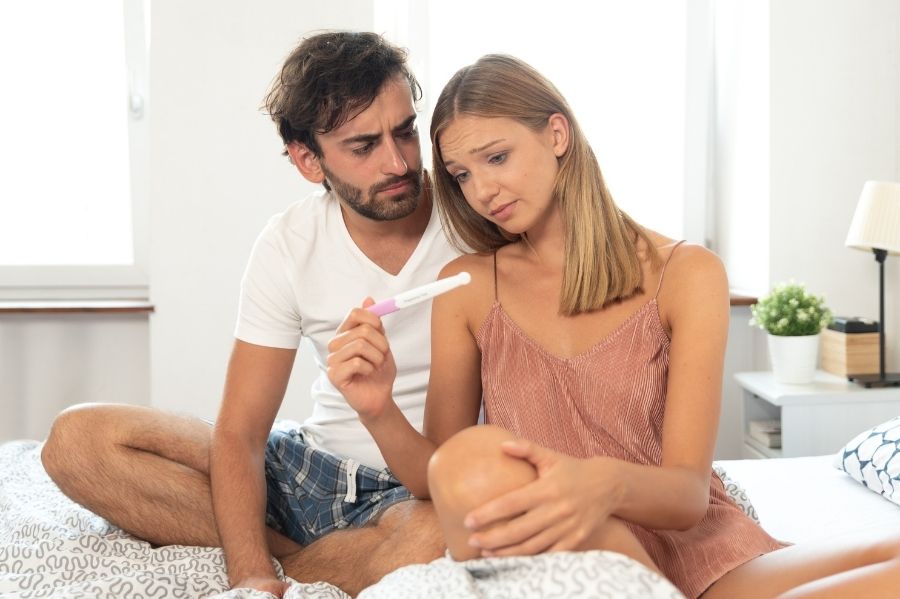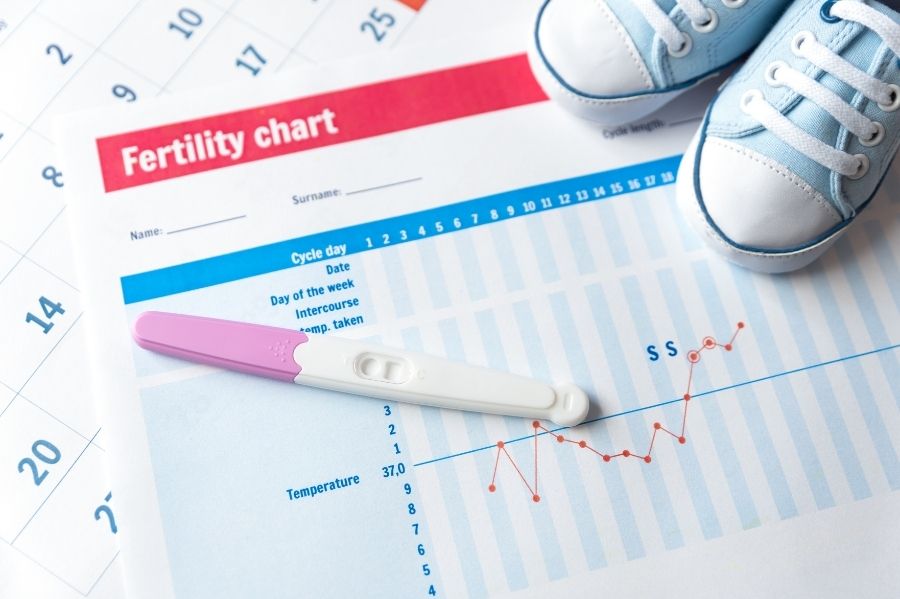A great misconception about fertility treatment is that its frightfully expensive, invasive and difficult; and this leads to a lot of people being too scared to seek help. In reality, a lot of people having difficulty conceiving, can actually get help and get pregnant without IVF but they don’t know this or know what steps to take. Concerningly, many people spend a lot of time trying on their own to no avail because they are too scared to seek help; so it may be reassuring to know that there are several treatment options that your doctors may suggest (depending on your medical situation) which you may be able to try before reaching the stage of IVF.

Written by Guest Blogger: Kristen Jones, an APACE accredited Embryologist with a Masters degree in Reproductive Medicine.
Hormonal Tracking
Tracking is an absolutely fantastic option for those of you that are not getting pregnant on your own and have not been diagnosed with fertility conditions such as blocked tubes or male factor infertility. It involves attending your clinic or blood collection centre regularly throughout your cycle for blood tests to check your levels of Estrogen, Luteinising Hormone (LH) and Progesterone.
For a lot of women, they actually do not ovulate at day 14 as many textbooks would have you believe and this might be the only thing standing in your way of getting pregnant. Some patients have actually admitted to only having sex on day 14 because that’s when they thought ovulation had to happen, and then find out they actually don’t ovulate until day 18 or later.

Ovulation Induction
This is for women who do not ovulate on their own and it can be incorporated with hormonal tracking and timed intercourse. It involves taking medication in the first week of your cycle and being regularly monitored for your response. Medications may be tablets which trick the pituitary gland into making more follicle stimulating hormone (FSH) or are actual FSH injections which stimulate more follicle growth. Sometimes, too many follicles grow and the cycle can get cancelled, or your body may not respond to the medication at all. But ideally, one dominant follicle develops and is ovulated (you may need a trigger injection to help this occur).
Timed Intercourse
This is when you undergo a hormonal tracking cycle as above to check for when ovulation is approaching and this may be done with or without ovulation induction. You may have an ultrasound as your estrogen starts to peak, or several ultrasounds throughout. The ultrasound will check for number of follicles and the size and hopefully you have 1 (sometimes 2) big follicles growing. You may get cancelled if more than 2 follicles are growing to reduce your risk of multiples.
Once your hormone levels indicate ovulation is near, you will be told when to have intercourse. For a lot of women who have never tracked their cycles, the results may be surprising! Those of you whom have tried OPKs or Basal body temping, you will know the confusion in deciphering the results, so the great thing with hormonal tracking is that the results are very clear, as an obvious peak in estrogen can be seen as well as the LH surge.
Intrauterine Insemination (IUI)
Commonly referred to as IUI, this is done in conjunction with hormonal tracking. It can be done with donor sperm, partner sperm, fresh or frozen sperm and involves washing the sample to remove the sperm from the seminal fluid. This removes immotile sperm and leaves a clean supply of the best quality ones which are then placed right at the entrance to the cervix.
The benefits are:
- sperm gets closer to the cervix for women who have hostile mucus
- for men with borderline sperm quality, the good ones get concentrated and can swim better when removed from the seminal plasma
- it is a more cost effective starting point for patients that do not have a diagnosed fertility issue
- it is less invasive than IVF as egg collection and embryo transfer procedures are not required, and stimulation is less intensive
Your doctor may suggest limiting IUI to a few cycles only as success rates are not drastically different to natural conception, particularly in older age groups.

IVF/ICSI
Finally, there are going to be some patients that will not have success with the aforementioned treatments or have been told they need to go straight to IVF/ICSI. These include patients that:
- Have male factor infertility
- Are using surgically retrieved sperm
- Endometriosis leading to blockages
- Uterine abnormalities
- Large fibroids
- Blocked tubes
- Are needing to have genetic testing
Fortunately, IVF is not deemed as scary as it once was and there are many different streamlined, less invasive protocols which clinics can opt for. It has certainly come a long way since its introduction all those decades ago and newer technologies give you a greater chance than ever of finally getting pregnant.
Guest blogger,
Kristen Jones
Kristen is an APACE accredited Embryologist with a Masters degree in Reproductive Medicine. After going through her own struggles to conceive she founded I Like My Eggs Fertilised to help educate about all things fertility to help make the experience more positive and less stressful.
P.S. Catch this week’s episode of The Hormone P.U.Z.Z.L.E Podcast –Embryos and IVF With Kristen Jones of I Like My Eggs Fertilised.
You can also find my podcast on my podcast page as well as Spotify, and Stitcher.
Don’t forget to subscribe, follow, and write us a review on Apple Podcast (if you LOVE it).




